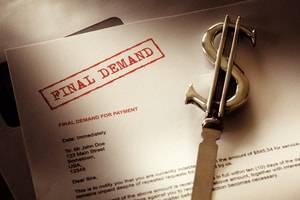 312-704-0771
312-704-0771
Recent Blog Posts
Key Differences Between Forbearance and Loan Modification
 When a borrower is defaulting or about to default on a loan, the lender can offer to modify the loan agreement to allow the borrower to repay the debt and avoid the consequences of violating the agreement. Loan forbearance is a tool that lenders and borrowers use to temporarily reduce or stop debt payments. The borrower agrees to repay the missed payments at a later date, with interest sometimes added. Forbearance is most often used when a borrower is going through a temporary financial hardship and anticipates being able to catch up on the payments once the hardship has passed. However, forbearance is different from loan modifications, and some of the differences can be advantageous to a lender.
When a borrower is defaulting or about to default on a loan, the lender can offer to modify the loan agreement to allow the borrower to repay the debt and avoid the consequences of violating the agreement. Loan forbearance is a tool that lenders and borrowers use to temporarily reduce or stop debt payments. The borrower agrees to repay the missed payments at a later date, with interest sometimes added. Forbearance is most often used when a borrower is going through a temporary financial hardship and anticipates being able to catch up on the payments once the hardship has passed. However, forbearance is different from loan modifications, and some of the differences can be advantageous to a lender.
Separate Agreements
With a loan modification, the lender and borrower are changing the original loan agreement to create a new repayment plan that the borrower can adhere to. Loan forbearance is creating a new agreement that temporarily supersedes the original loan agreement. The forbearance agreement should state:
Illinois Considering Five Changes to Debt Collection Laws
 A group of Illinois State Representatives has introduced a package of bills that are meant to increase debtor protection against creditors. The bills are all stalled at the committee level, putting their future in doubt. However, that is unlikely to stop the legislators from continuing to push these bills or from creating similar bills in the future if the current bills die. The laws would reduce a creditor’s ability to collect on outstanding debts by shortening the window of opportunity to enforce a debt judgment, reducing interest rates on debts, and providing greater protections for debtor assets.
A group of Illinois State Representatives has introduced a package of bills that are meant to increase debtor protection against creditors. The bills are all stalled at the committee level, putting their future in doubt. However, that is unlikely to stop the legislators from continuing to push these bills or from creating similar bills in the future if the current bills die. The laws would reduce a creditor’s ability to collect on outstanding debts by shortening the window of opportunity to enforce a debt judgment, reducing interest rates on debts, and providing greater protections for debtor assets.
Proposed Changes
The legislators have presented five bills that would amend Illinois’ Code of Civil Procedure, including:
- Reducing the time frame during which a debt judgment may be enforced from 27 years to five years, after which the creditor must petition to revive the judgment;
Congress Proposes Law to Exempt Creditor Lawyers from Debt Collection Regulations
 The U.S. House of Representatives is considering legislation that would exempt creditors’ rights lawyers from the federal regulations meant for debt collectors. The Practice of Law Technical Clarification Act would amend both the Fair Debt Collection Practices Act and the Consumer Financial Protection Act of 2010 so that:
The U.S. House of Representatives is considering legislation that would exempt creditors’ rights lawyers from the federal regulations meant for debt collectors. The Practice of Law Technical Clarification Act would amend both the Fair Debt Collection Practices Act and the Consumer Financial Protection Act of 2010 so that:
- Law firms engaged in litigation are excluded from the definition of a debt collector; and
- The Consumer Financial Protection Bureau does not have authority over attorneys who are not acting as debt collectors.
If the law passes, state courts would have primary authority to determine whether a creditor lawyer is guilty of misconduct in a case.
Lawyer Exemption
Congress did away with the creditor lawyer exemption in the FDCPA because it protected some attorneys who participated in illegal debt collection practices outside of their court cases. The change was meant to allow debtors to file lawsuits against lawyers for conduct not involving litigation. However, courts have allowed debtors to collect damages when lawyers make technical mistakes in filing litigation against debtors. Lawmakers did not intend for creditor attorneys to pay statutory damages for an honest mistake made when bringing a legitimate lawsuit against a debtor. The new law would protect lawyers from unnecessary lawsuits while still allowing state courts to hold lawyers accountable.
Debt Collection Tips for Small Business Owners
 As a small business owner, you likely do not think of yourself as a creditor. However, that is the role you have taken when you allow customers to repay you over time for products or services provided. Collecting debt sometimes requires being more forceful with debtors than you are comfortable with. Because you deal with your customers personally, it may be awkward to hold them accountable for unpaid debts. You can minimize confrontation during debt collection by acting quickly and being thorough.
As a small business owner, you likely do not think of yourself as a creditor. However, that is the role you have taken when you allow customers to repay you over time for products or services provided. Collecting debt sometimes requires being more forceful with debtors than you are comfortable with. Because you deal with your customers personally, it may be awkward to hold them accountable for unpaid debts. You can minimize confrontation during debt collection by acting quickly and being thorough.
Crafting an Agreement
You should always finalize any borrowing or repayment plan with a customer by having them sign a written contract. Verbal agreements are difficult to enforce if your customer does not pay you back. A contract should explain:
- The timeline for making payments;
- Any interest accrued as part of the repayment plan;
Law Protects Servicemembers During Vehicle Repossession
 Before repossessing a vehicle, an auto lender must confirm whether the owner is a U.S. military member on active duty. The Servicemembers Civil Relief Act includes a section protecting active servicemembers who default on their auto loans. The auto lender must obtain a court order to repossess the vehicle. The order may include forms of financial relief not normally given to vehicle owners. Failing to comply with the SCRA can be a criminal offense.
Before repossessing a vehicle, an auto lender must confirm whether the owner is a U.S. military member on active duty. The Servicemembers Civil Relief Act includes a section protecting active servicemembers who default on their auto loans. The auto lender must obtain a court order to repossess the vehicle. The order may include forms of financial relief not normally given to vehicle owners. Failing to comply with the SCRA can be a criminal offense.
Qualifications
The SCRA applies to people who are away from home while serving as:
- An active member of one of the branches of the U.S. military;
- A reservist reporting for military service;
- A National Guard member;
- A commissioned officer of the Public Health Service or National Oceanic and Atmospheric Administration; or
Nuances of Business to Business Debt Collection
 Businesses are some of the most lucrative clients for finance companies because they need loans to purchase goods or equipment. A well-timed loan can help a business eventually turn a profit and lead to long-term relationships with financiers that benefit both sides. However, businesses are also liable to default on their debts, which may be substantial depending on how much they needed to purchase. Finance companies must use their best judgment in determining how aggressive they should be with business clients.
Businesses are some of the most lucrative clients for finance companies because they need loans to purchase goods or equipment. A well-timed loan can help a business eventually turn a profit and lead to long-term relationships with financiers that benefit both sides. However, businesses are also liable to default on their debts, which may be substantial depending on how much they needed to purchase. Finance companies must use their best judgment in determining how aggressive they should be with business clients.
Personal Communication
Hiring a debt collection agency or taking a commercial debtor to court may sour the relationship between a finance company and a business. Before taking those steps, the creditor can try to settle the debt on a more personal level by:
- Sending a letter to inform the business that it is late in making payments;
Being Thorough with Citation to Discover Assets
 After a judge rules that a debtor must repay a creditor, the two parties will often find themselves back in court as part of the debt collection process. The creditor has several tools at its disposal, such as wage garnishment and seizing collateral property. However, the process must start with determining what resources the debtor has available. In Illinois, a creditor can file a Citation to Discover Assets, which compels the debtor to appear in court and answer questions under oath. With this opportunity, it is important for the creditor to ask questions that will help it uncover the debtor’s true asset values.
After a judge rules that a debtor must repay a creditor, the two parties will often find themselves back in court as part of the debt collection process. The creditor has several tools at its disposal, such as wage garnishment and seizing collateral property. However, the process must start with determining what resources the debtor has available. In Illinois, a creditor can file a Citation to Discover Assets, which compels the debtor to appear in court and answer questions under oath. With this opportunity, it is important for the creditor to ask questions that will help it uncover the debtor’s true asset values.
Leading Up to Court Appearance
The process starts with filing the Citation to Discover Assets with the local court and serving notice to the debtor. As part of the notice, the creditor can request that the debtor prepares specified financial documents for the hearing. Illinois law requires creditors to include an Income and Asset Form as part of the citation. Debtors must respond to a series of written questions meant to determine:
Four Ways to Present Reaffirmation Agreements During Bankruptcy
 Offering a reaffirmation agreement to a debtor going through Chapter 7 bankruptcy can allow a secured creditor to receive close to full value on debts for real and personal property. As part of a Chapter 7 debt discharge, a secured creditor normally repossesses properties if a debtor will be unable to repay the loan. However, the creditor most likely cannot hold the debtor liable for any deficiency after resale of the property. With a reaffirmation agreement, the debtor keeps the property as long as he or she can continue making payments. If the debtor defaults, the creditor can repossess the property, and the debtor would be liable for any deficiency after resale. Knowing the risk this may pose their clients, bankruptcy lawyers will discourage debtors from signing reaffirmation agreements. Creditors need to inform debtors of why a reaffirmation agreement may be to their advantage:
Offering a reaffirmation agreement to a debtor going through Chapter 7 bankruptcy can allow a secured creditor to receive close to full value on debts for real and personal property. As part of a Chapter 7 debt discharge, a secured creditor normally repossesses properties if a debtor will be unable to repay the loan. However, the creditor most likely cannot hold the debtor liable for any deficiency after resale of the property. With a reaffirmation agreement, the debtor keeps the property as long as he or she can continue making payments. If the debtor defaults, the creditor can repossess the property, and the debtor would be liable for any deficiency after resale. Knowing the risk this may pose their clients, bankruptcy lawyers will discourage debtors from signing reaffirmation agreements. Creditors need to inform debtors of why a reaffirmation agreement may be to their advantage:
Convenience Fees Not Allowed Without Consent in Debt Agreement
 Debtors have multiple payment methods they can use to transfer money when repaying debts. Some forms of payment incur additional convenience fees, such as when debtors use credit cards or money orders. Creditors have at times formed agreements with the third-party vendors to share these convenience fees. However, they should examine state laws and their contracts with debtors before entering such agreements. Creditors and debt collectors are often prohibited by law from collecting convenience fees and may be punished for doing so.
Debtors have multiple payment methods they can use to transfer money when repaying debts. Some forms of payment incur additional convenience fees, such as when debtors use credit cards or money orders. Creditors have at times formed agreements with the third-party vendors to share these convenience fees. However, they should examine state laws and their contracts with debtors before entering such agreements. Creditors and debt collectors are often prohibited by law from collecting convenience fees and may be punished for doing so.
Federal and State Law
The Fair Debt Collection Practices Act states that a debt collector cannot institute a fee that increases the amount a debtor owes unless:
- The debt agreement authorizes the fee; or
- State law permits the fee.
Late fees are often included in debt agreements, which makes them legal. However, convenience fees may not be included because they are normally instituted by third-party vendors as a cost for using their services. Illinois’ Collection Agency Act states that convenience fees must be included in a debt agreement in order for a debt collector to collect or request them. Many states have similar laws, though some do not have any laws addressing convenience fees.
FHA Loans Add Extra Steps to Mortgage Foreclosure
 The Federal Housing Administration, through the Department of Housing and Urban Development, offers protected loans to help lower income borrowers obtain mortgages. The FHA insures the loan, which gives the lender greater certainty that it will be compensated in case of default. As part of the FHA insurance, the lender must follow federal guidelines in contacting borrowers when they default on the mortgage. Failure to document compliance can halt foreclosure efforts on the property.
The Federal Housing Administration, through the Department of Housing and Urban Development, offers protected loans to help lower income borrowers obtain mortgages. The FHA insures the loan, which gives the lender greater certainty that it will be compensated in case of default. As part of the FHA insurance, the lender must follow federal guidelines in contacting borrowers when they default on the mortgage. Failure to document compliance can halt foreclosure efforts on the property.
In-Person Meeting
According to the Code of Federal Regulations, the lender must have or attempt to have a face-to-face meeting with the borrower before the borrower has missed three months of required payments. If the lender does not have the meeting, it must show that it made a reasonable effort to contact the borrower, including:
- Sending at least one letter of notice, with delivery certified by the U.S. Postal Service; and






